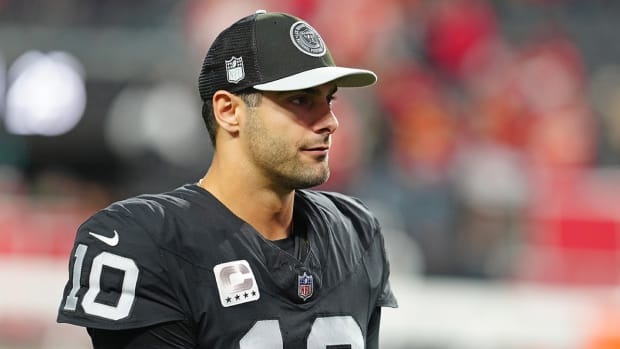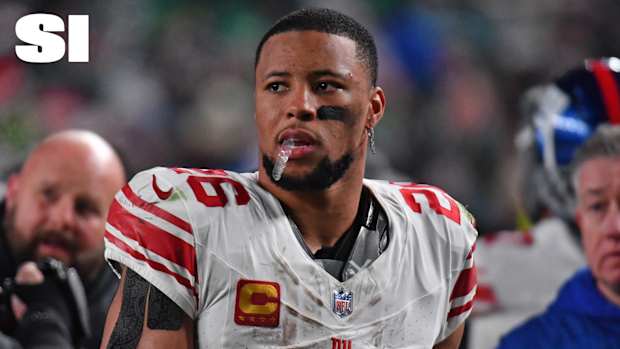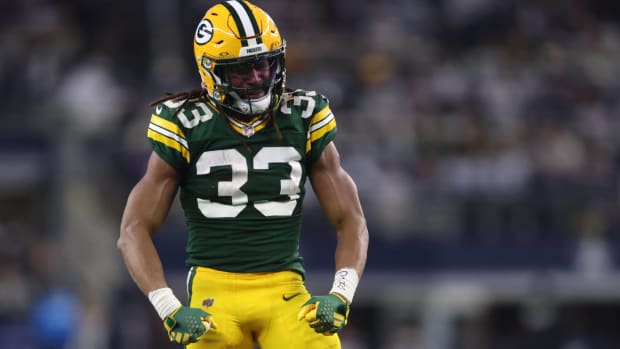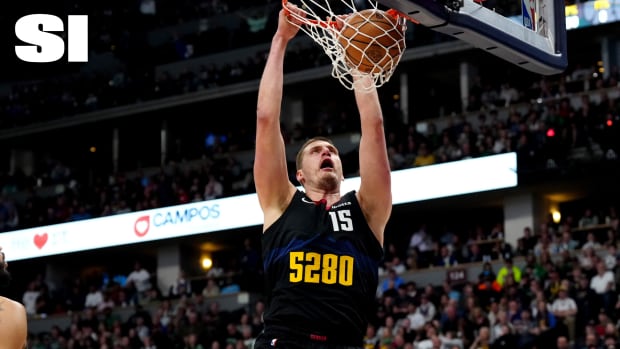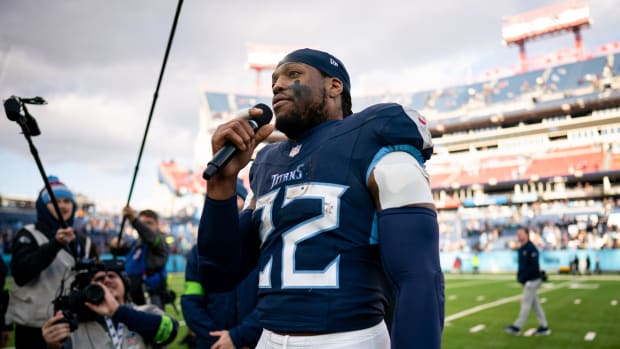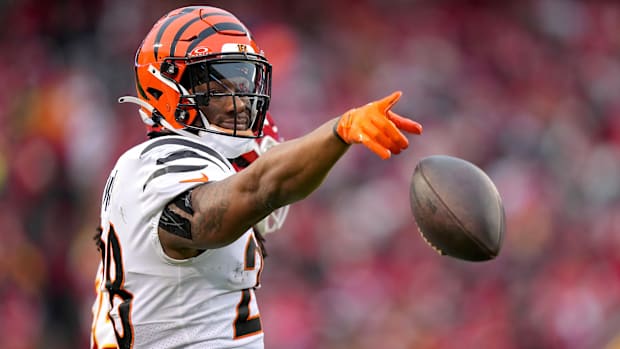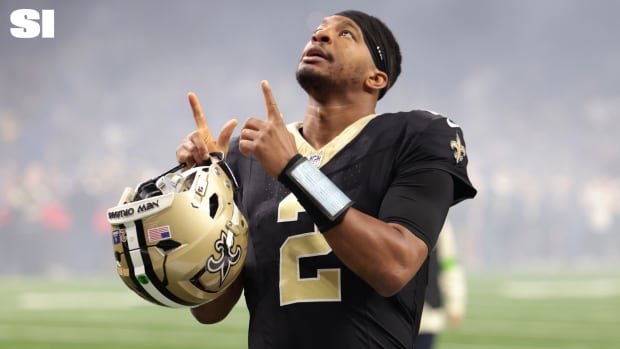Is Kyrie Irving Being Unfairly Portrayed For Not Thinking the NBA Should Return Now?
Kyrie Irving is in his own league when it comes to how he's been portrayed around the NBA's return.
Sports Illustrated host Robin Lundberg talked with Wosny Lambre, Culture Writer for The Athletic, and SI's Corey Parson to get their thoughts on how Kyrie has been covered when it comes to the NBA's planned resumption.
Read the full video transcript:
Robin Lundberg: One could say Kyrie Irving's in his own league in the way he's been portrayed regarding the NBA's return. And while there are conflicting reports on what exactly he said, he's clearly positioned himself against the NBA restarting. For more on that, I'm joined by my guy Wos, of course, a cultural writer for The Athletic part of the Count the Things podcast network. And our own Corey Parson. Wos, let's start with you. How do you feel Kyrie has been portrayed throughout all this?
Wosny Lambre: This is Kyrie Irving we're talking about here. This is not somebody who doesn't have a history of saying things in public, right? I don't think this feels out of the blue. I think the idea that Kyrie is being characterized in a certain light, I think is a bit overblown in the sense that Kyrie has he's he's been in the league nine years now and he has a public record. Right. I think the characterization is fine. If you want to question what Kyrie Irving is saying about something that's very important, by the way. I think Kyrie himself has opened himself up to being viewed, cast in a certain light, just based off with things that he himself has said in the past, not mischaracterizations of what he said, the words that have actually come out of his mouth. And so I think I have no problem with people taking what Kyrie says and running with it based on prior things that he said. Again, all of that being said, the idea that NBA players who are ostensibly, they're not just athletes, they are entertainers, that they would come out on July 31st and entertain during a time of the biggest popular uprising in this country in 50 years. The optics of that matter. And so what Kyrie and Dwight Howard and anybody else is getting at is the right idea. Right. The players should be thinking about this and thinking about how they want to attack this. The people mentioning that Kyrie might be an imperfect vessel for this message? Quite frankly, I agree with that. But for me, I don't receive the message any differently because it's coming from a flat earther. That's just me.
Robin Lundberg: Corey to Wos's point. I don't think people disagree with Kyrie's sentiment, but the chief critique is what's your plan? If you're not going to play.
Corey Parson: Exactly. Listen, I don't think that Kyrie Irving has bad intentions, but when Kyrie Irving comes out in this form like this and he starts talking. Listen, the coverage has been fair. Listen, you have people who think, you know what? Kyrie Irving is a free thinker and I kind of see some of his points and what he makes. What I would say to Kyrie is when you come out like this. Have a plan. Now one thing that these gentlemen in the NBA have is they have tremendous financial backing. They can take a lot of things right there in their own community. You look at what a guy like Steph Curry is doing. Kyrie's greatest on the court rival. What is community activism and his initiative in the Bay Area. He's putting his money for would not say that Kyrie isn't, but that capital is what's needed right now. Not so much of the talk and hearsay. Let's get the capital together. Let's push this thing in the right direction.
Robin Lundberg: Now, you know, Wos, real quick. When the NBA does return, we know it'd be naive to say it isn't about financial reasons. Right. But how much impact do you think they could actually have?
Wosny Lambre: The question is a difficult one for me, because, again, I take a different view from this. I think there's a difference between a LeBron James starting a school in the city, neighborhood that he grew up with and what he can do with his, quote unquote platform. I seem to I have a long enough memory to remember 2016 and him campaigning on behalf of one Hillary Clinton in Ohio. And her getting her ass kicked in the state. Okay. Like there's a sort of limit to what these guys can do with it, what people call their platform and to the idea that guys can't hope and like that they can't walk and chew gum at the same time. I completely reject the idea that anybody will be so entrenched, be so entranced by Playoff P and skinny Jokic that they can't possibly pay attention to what's going on out in the world in their communities. I reject that idea outright. I think they can project incredible messages, give light to incredible causes while hooping. I like the idea that just hooping alone will stop it. I reject the idea that you don't want to do this thing that's so celebratory and so, essentially, it's a distraction. And I don't mean that in a pejorative sense. I mean that literally. You want to take a break from what's going on out in the streets to watch NBA basketball. I understand that part of it. But this concept that people can't watch hoops for two hours in a day and then go about understanding what's happening in our country as it pertains to black people, and, you know, police state, that's ridiculous to me.
Robin Lundberg: Wos, Corey, appreciate your time and insight on this topic. Thank you. Thank you, guys.
For more NBA coverage:






























